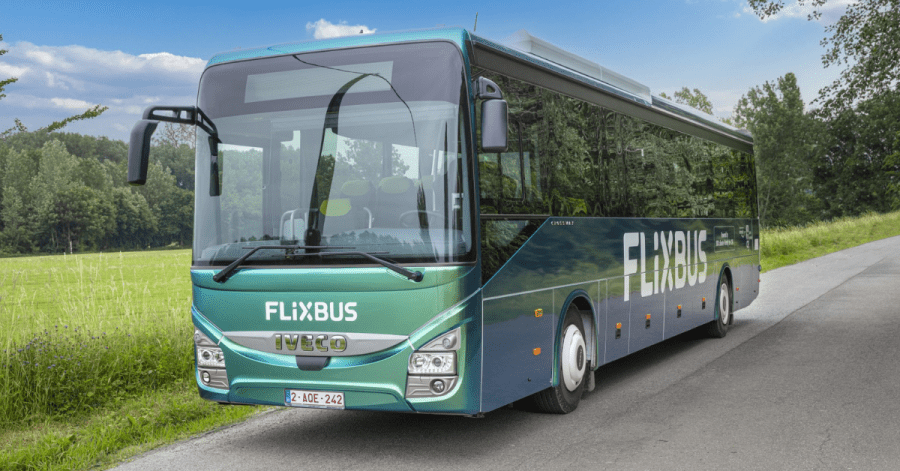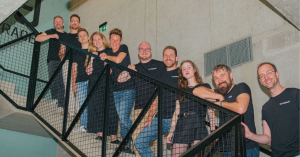With the closure of a $650M Series G round in June this year, the largest long-distance network in Europe, Flix announced that it is expanding its operation into Eastern Europe and reinforcing its position on the Bulgarian market. The mobility tech company, which entered the local market in 2018, will open a Knowledge Hub in Sofia. The Hub will complement the work of their headquarters teams in Belin and Munich and their existing hubs in Nuremberg and Kharkiv.
The deal was facilitated by BICA and Anthill, together with the commercial representative of Bulgaria in Bavaria, Stefan Ionkov, who is head of the Commercial and Economic Affairs and played a key role in attracting the company’s interest towards Bulgaria. The Bulgarian Ministry of Economy, Telerik Academy, and The Sofia University “St. Kliment Ohridski” also participated in the negotiations phase. The founder of Anthill and BICA Andrey Bachvarov told The Recursive team that the parties involved in this public-private cooperation made a great pitch and managed to convince the international tech mobility leader to choose Bulgaria as the location to open their Knowledge Hub. Flix comments that Sofia appeared as a great fit for the company’s needs and culture ad additionally, they were attracted by the deep cross-functional talent pool.
The Hub will employ around 260 people including IT specialists and as well as admin and marketing professionals and as of now there are more than 20 open positions. BICA and Anthill will be supporting their recruiting needs at the local level as they are slowly building their in-house HR department. Bringing in years-long experience in the software industry, director of the Bulgarian hub of FlixBus will be Petar Bankov, the former Head of Global Business Services and Managing Director of the Bulgarian office of Experian.
“FlixBus offers a great example of how a startup with technology, the skillful use of data, and a customer focus can quickly become a global mobility tech company. We know from initial research that Sofia offers ideal conditions to extend our talent pool, especially for marketing and tech positions. I am very much looking forward to working with local talents contributing to the growth of sustainable and affordable mobility in Bulgaria,” Peter Bankov shares for The Recursive.
The mix between a tech-startup, e-commerce platform, and a mobility company
Essentially, Flix offers alternatives for sustainable, convenient, and budget travel via bus and train through its FlixBus and FlixTrain brands. The company currently operates in 36 countries, connects over 2 500 destinations, and served more than 62 million passengers in 2019 alone. The latest round comes in a mix of equity and debt from the previous investors, the founders – Jochen Engert, Daniel Krauss, and Andre Schwammlein, and a new investor Canyon Partners raises the valuation of the company to over $3B. The new partner of the tech-mobility company will facilitate the expansion in new markets and the reiteration of the market position of existing markets.
The success story of the young mobility provider which is less than 10 years old can be attributed to its business model and constant efforts to innovate and digitize the travel experience. First, the company owns rolling stock in trains but does not own buses (besides one for licensing purposes) and instead partners with local bus and train companies which do the rides on behalf of Flix. Therefore, the revenue-sharing business model of Flix allows it to dynamically respond to changes in demand. In terms of the digital offerings, the company provides services such as onboard Wi-Fi, an e-ticketing system, an app, GPS Live Tracking, and a system that automatically manages delays.
FlixMobility’s fast track to international expansion
In the beginning, the parent company Flix was exclusively focused on providing bus services and was launched as FlixBus. The mobility startup was founded in 2013 in Munich as a result of the deregulations of the bus market in Germany and of the founders’ vision to make sustainable travel affordable and convenient. It did not take long for FlixBus to turn into the reading long-distance travel provider in its home country and only two years later it began expanding into France, Italy, Denmark, and the Netherlands.
As the startup put a lot of effort into developing its digital product alongside the mobility network, it was able to gain many differentiating features and rise over its competitors. The company has made acquisitions in some countries such as Turkey but in general, Flix collaborates with local transport operators in every market. For example, in Bulgaria, they collaborate with two local operators Detelina Drita and Karat S for long-distance bus services on international routes. In 2018 the company also expanded its traveling offering by introducing FlixTrain.
Fast forward to today, both of the company’s main services – FlixBus and FlixTrain, along with the entire mobility sector, has faced massive challenges due to the impact of COVID-19. In order to best navigate through the pandemic, the company accelerated the rates of automation, made significant investments in tech improvements, and rearranged its network of vehicles. With the fresh $650M Flix will aim to accomplish its vision to become the biggest sustainable long-distance mobility network in the US, UK, and Portugal, and to establish a strong market presence in Turkey, France, and Eastern Europe. To turn this goal into a reality, one of the three founders emphasized the need for the EU to support fair competition and resolve the issue of unequal market access.
+++Find out how close is the SEE region to become a corporate R&D hotspot? +++







